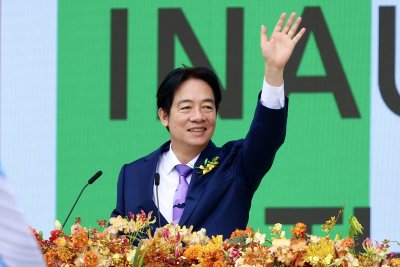Opposition parties advance impeachment of Taiwan’s president, premier

Taiwan President William Lai Ching-te, pictured, and Premier Cho Jung-tai will undergo impeachment proceedings after Taiwan’s legislature approved an impeachment motion on Friday. File Photo by Ritchie B. Tongo/EPA-EFE
Dec. 26 (UPI) — Taiwan President William Lai Ching-te and Premier Cho Jung-tai face impeachment proceedings filed by opposition party leaders accusing them of constitutional and legislative violations.
Members of Taiwan’s KMT and TPP parties and two independent lawmakers secured enough support on Friday to advance impeachment proceedings to go before Taiwan’s Constitutional Court, Al Jazeera reported.
The impeachment effort is viewed as symbolic because a two-thirds majority is needed to impeach an official holding public office in Taiwan.
“It’s not possible to have a real impeachment,” Yen-tu Su, a constitutional law and democratic theory expert at Taiwan’s Academia Sinica, told Al Jazeera.
“They want to make a record that President Lai would be the first president considered impeached in the history of Taiwan’s democracy,” he said. “It’s a way to register their protest.”
The Legislative Yuan approved an impeachment motion with a 60-51 vote on Friday, but it would take 76 of its 113 seated members to impeach the president and premier.
The conflict arises from Lai’s administration refusing to enact a legislatively approved amendment that would give more public funding for local units of government, according to the South China Morning Post.
The Legislative Yuan is controlled by opposition parties, but Lai’s refusal to enact the law change created conflict, and Cho Jung-tai declined to sign the amendment.
Lai became president in 2024, but Taiwan’s legislature has been divided and mostly deadlocked since.
